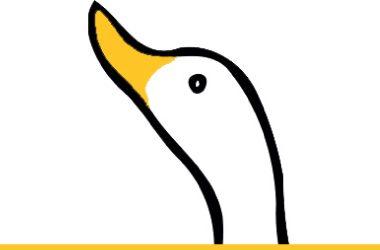 Trevor Cox’s eyes shine when he talks about sound – there’s genuine excitement and an insatiable hunger to experiment, collect and unlock its secrets.
Trevor Cox’s eyes shine when he talks about sound – there’s genuine excitement and an insatiable hunger to experiment, collect and unlock its secrets.
Trevor is Professor of Acoustic Engineering at the University of Salford and former president of the Institute of Acoustics, which makes him an expert in the world of sonic studies. He’s written for The Guardian and New Scientist; presented science shows to over 15,000 pupils in venues including the Royal Albert Hall and the Royal Institution, and he’s created many documentaries for BBC Radio.
A large part of his work involves sound engineering: making spaces acoustically perfect, whether they’re concert halls or recording studios. But then he had a thought: what about those ‘unwanted’ noises? Those secret and amazing background sounds we can’t – or simply choose not to – hear?
“I had been so busy trying to remove unwanted noise that I had forgotten to listen to the sounds themselves,” he says. “Perhaps ugly, strange and distorted sounds could teach us something about how acoustics work in everyday situations – or even how our brains process sound.”
This desire to ‘listen between the lines’ led Trevor, like a Victorian plant hunter, to embark on an intrepid quest. He has tracked down and collected some of the sonic wonders of the world: Iceland’s bubbling mud pots, the Mojave Desert’s singing sand dunes and the world’s longest echo. The resulting book, Sonic Wonderland: A Scientific Odyssey of Sound, is a travel guide with a difference – one that won’t show you the sights!
As part of Chorlton Book Festival, Trevor will talk about what he’s found. He’ll explain how sound is made and altered by the environment; how our body reacts to peculiar noises and how these mysterious wonders illuminate sound’s surprising dynamics in everyday settings. He’ll be ‘illustrating’ his talk with some of the unusual sounds he has collected.
So then, what’s the worst sound in the world? “We did a survey a few years ago and over two million people voted. Fingers down a blackboard, crying babies, dentist drills and badly played instruments – they were all there – but the very worst? The sound of someone being sick!”
In his lighter moments, Trevor has also experimented with a duck in an anechoic chamber (a silent space where sound is completely absorbed) to see if its quack echoed (of course it did!). Trevor argues that we all need to become better listeners. Our world is dominated by the things we see with our eyes.
Let’s open our ears.
